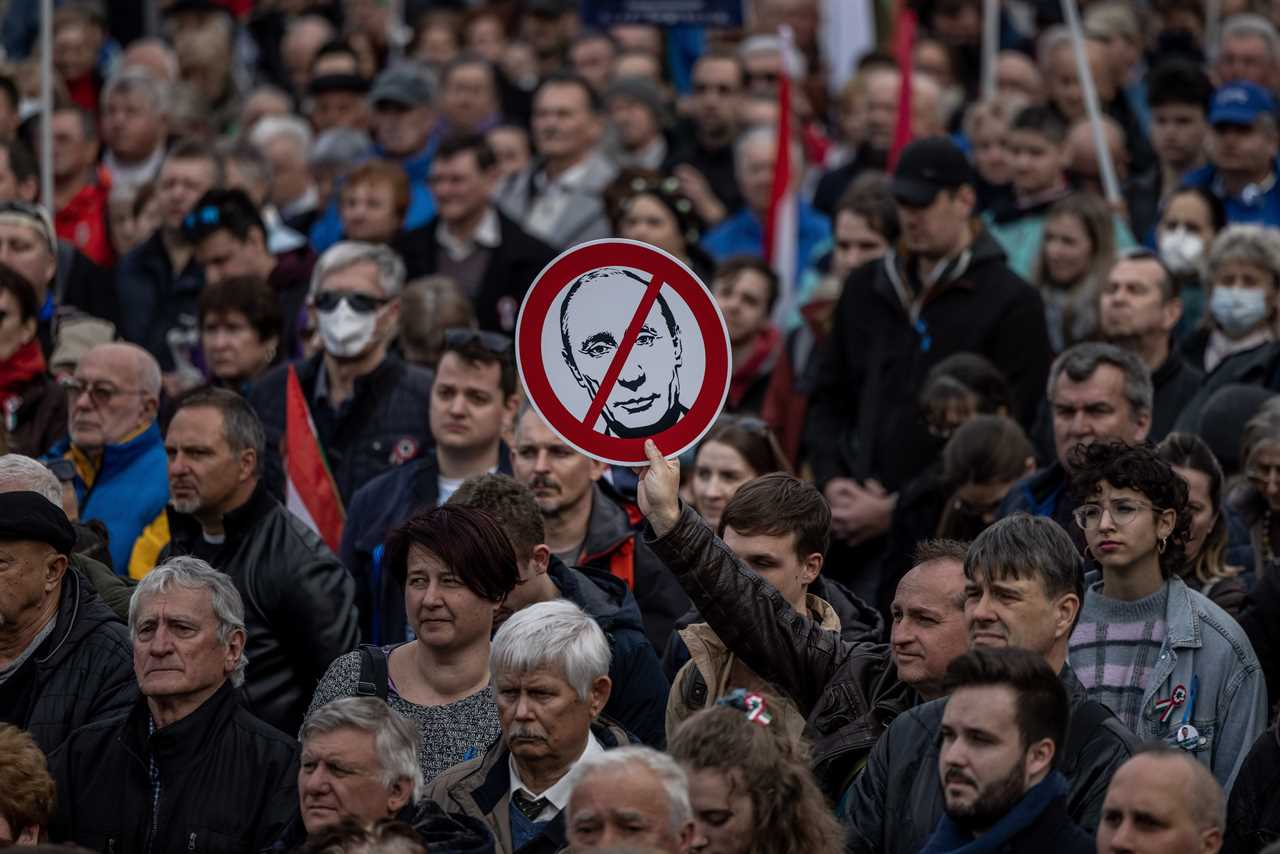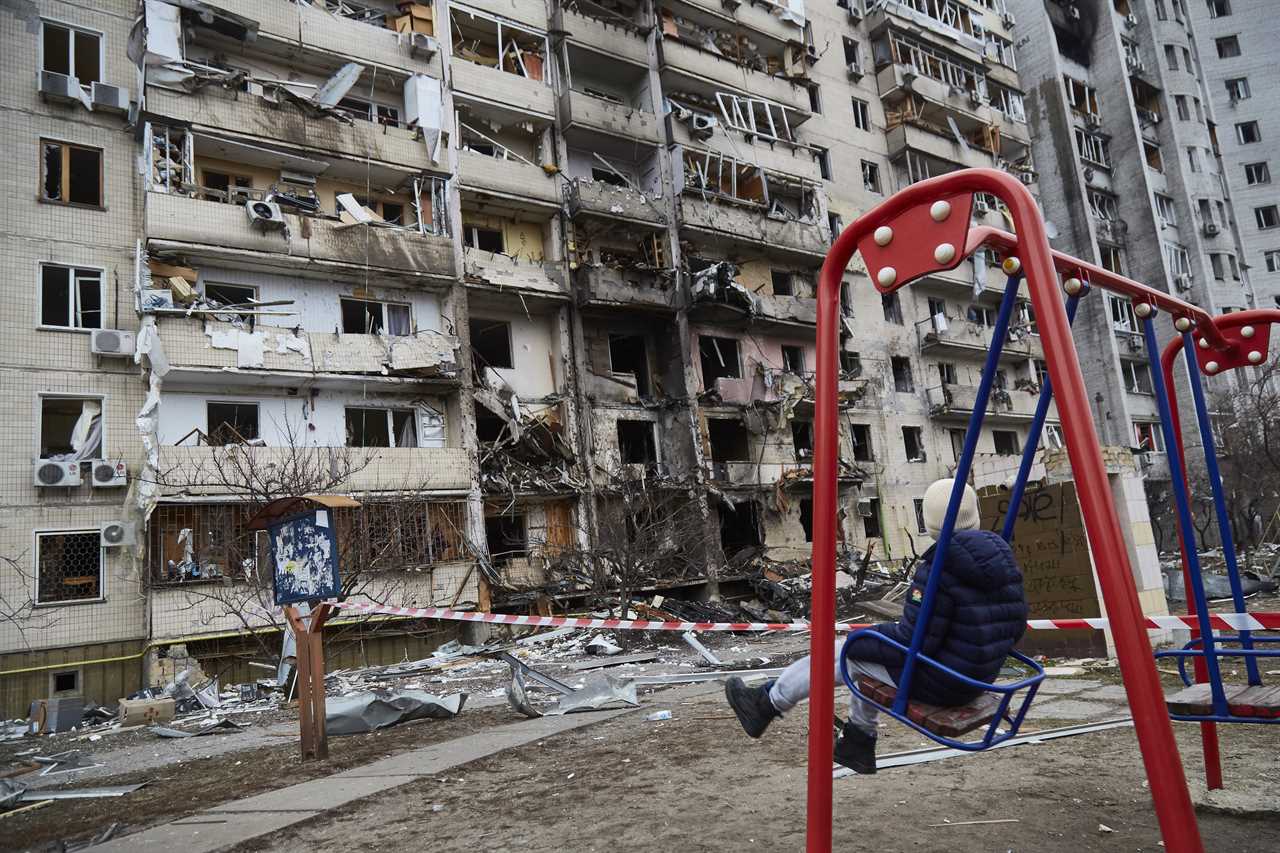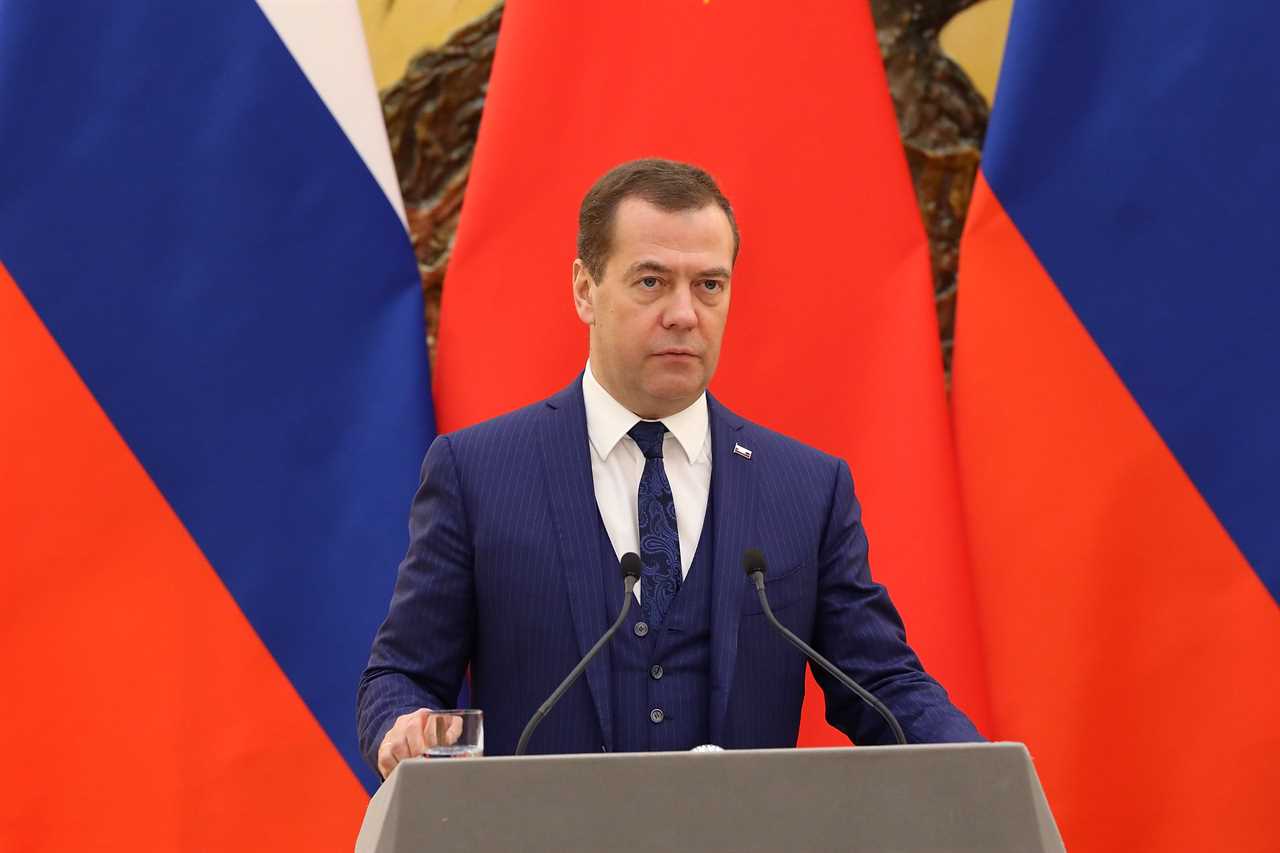
As the U.S. and its allies increase their commitment to arming Ukraine, there’s growing speculation over President Joe Biden’s endgame. Although the White House has gone to great lengths to say the United States does not have a policy of promoting regime change in Russia, there’s no question that there has been much discussion in private conference rooms and over kitchen tables about whether the United States should, in fact, be rooting for Vladimir Putin to be removed as Russia’s president.
To figure out whether we would be better off without Putin, though, we first need to weigh something else: How would Putin’s departure from power affect Russia? Would a leader or system that came after him be better or worse?
For years, many within the Russia-watching community have argued that Putin’s departure would likely unleash instability inside Russia and exacerbate its foreign aggression. For instance, a new leader who needed to consolidate power could stoke nationalist or anti-Western undercurrents already present in Russia to boost public support. Or, lacking Putin’s ability to balance Russia’s competing factions, elite infighting could spark political upheaval and violence that could destabilize the country, which after all is a nuclear power. According to this line of reasoning, Putin’s critics should be careful what they wish for: a Russia without Putin could be even worse for the West.
This view held some intellectual merit prior to Putin’s invasion of Ukraine, but now that argument is growing weaker by the day. To justify the war, Putin has stoked a dark and ugly nationalism inside Russia. His propaganda has convinced many Russians of the legitimacy of his senseless “de-nazification” campaign in Ukraine, so much so that some Russians have come to view the killing of Ukrainian civilians as acceptable. Putin openly speaks of “national traitors” and the need to “cleanse” them from society. Repression has soared and Russians have taken to reporting on “anti-patriotic” activities of their fellow citizens. And it is possible that even darker days lie ahead; the worse Russia fares in Ukraine, the greater the prospect that Putin will turn to cyberattacks or chemical or nuclear weapons to avoid the perception of defeat.

We have studied autocratic regimes for many years, and the empirical record increasingly supports the conclusion that a Russia with Putin is likely to be worse than one without him.
In our research, we have analyzed the leadership transitions of autocrats who have been in power for 20 years or more, as Putin has been, to gauge what is likely to happen once Putin leaves power. Narrowing in on this subset of longtime leaders is important because most authoritarian leaders govern for less than a decade, and the political outcomes that follow longtime leaders’ departures from office differ considerably from their less durable authoritarian peers. The historical track record of longtime autocrats suggests that if Putin exited office as a result of domestic dynamics — that is, from coups, protests, or natural death in office — Russia’s political trajectory would be unlikely to get worse in terms of repression and aggression than it is now and might even improve.
Take political stability. Russia’s own Communist past could be seen as supporting concerns about the potential for instability in Putin’s wake. After all, when Russia’s longest serving leader, Joseph Stalin, died in office after 29 years, a power struggle erupted over who would succeed him. Nikita Khrushchev eventually emerged on top, but he was subject to efforts by rivals in the Politburo to oust him and was eventually removed in a palace coup after nine years. Yet, despite this period of leadership uncertainty, conditions in the Soviet Union improved markedly after Stalin died. Moreover, Russia’s post-Stalin experience holds limited relevance for understanding Russian dynamics today because political dynamics in autocracies have changed significantly since the end of the Cold War, including in the ways that autocrats come to and fall from power.
When looking at leadership transitions of longtime authoritarian leaders in the post-Cold War era, we see that coups and wide-scale protests are no more likely to erupt in the years after such leaders leave office then while they were in it. In those cases where coups or mass protests did occur, the country was more likely to have a level of wealth substantially lower than in today’s Russia. In Côte d’Ivoire, for example, former President Félix Houphouët-Boigny died in office in 1993 after ruling for 33 years; his successor, Henri Konan Bédié, was toppled in a coup in 1999. In Indonesia around the same time, mass protests led to the ouster of longtime strongman Suharto in 1998 and continued the following year until his successor, B. J. Habibie, was forced out too. Russia is significantly wealthier than both countries.
The same pattern emerges when examining more significant forms of instability such as state-based armed conflict, or domestic instability involving at least 25 battlefield deaths. Looking at the post-Cold War period, the chance of such conflict in any given year is 27 percent during longtime authoritarian leaders’ tenures. The year after these leaders leave office, it decreases to 11 percent and in the 10-year period that follows, the overall average is 16 percent. Here too, rates of state-based armed conflict tend to be lower after longtime authoritarian leaders leave power.
To be fair, in all likelihood, authoritarianism in Russia will persist beyond Putin. This has been true in 75 percent of cases most like Putin’s Russia. Sometimes, the same authoritarian regime remains intact, as it did in Cuba following Fidel Castro’s retirement in 2008 or Zimbabwe following the coup that ousted Robert Mugabe in 2017 after 30 years in power. In others, a new autocracy emerges, as in Rwanda following the overthrow of Juvénal Habyarimana in 1994. In fact, authoritarianism is so persistent in the wake of the departure of longtime personalist leaders because the tactics they use to prolong their rule — quashing the opposition, silencing civil society and hollowing out institutions — create environments inhospitable to the emergence of democracy.

But even a new autocrat at the helm could change the tone of Russian politics, as the four-year term of Dmitry Medvedev as Russia's president demonstrates. Although the contours of Russian foreign policy remained intact from 2008 to 2012 (the years he served as president while Putin stepped into the prime minister role), the switchover to Medvedev created new opportunities for engagement with Russia even as Putin continued to hold the real power. It was under Medvedev, for example, that the United States and Russia concluded the New START nuclear arms control treaty and Russia allowed Washington to expand a logistics network in Central Asia needed for transporting American equipment to Afghanistan.
But it’s not just that political conditions are unlikely to be worse in post-Putin Russia; there is also substantial upside potential. Here again, Russia’s comparatively higher level of wealth provides it some advantages: Although economic riches help authoritarians survive longer in office, they also improve the chance of democracy should the leader exit power. Wealth helps dictatorships withstand the “stresses of modernization,” but it also increases the likelihood they will succumb to pressures for popular government upon the leader’s departure.
Chances for liberalization would be even greater if Putin exits amid street protests instead of a coup. In the five-year period after protests unseated post-Cold War longtime autocrats, all countries but one saw a new regime emerge — and importantly, in half of those cases the new regime was democratic. This is because when protests unseat a leader, the transition is often accompanied by more significant turnover among the ruling elite relative to other modes of transition like coups. And even if democracy doesn’t emerge immediately, the historical record shows that levels of repression tend to improve in the years following a longtime authoritarian leader’s exit.
The United States has long had a Russia challenge, but in the last two months it has become evident that it will be impossible to address that broader challenge with Putin still in power. Of course, it would be imprudent for the United States to adopt a formal policy of regime change, but Washington need not pull any punches in fear that what follows Putin would be worse. The patterns of post-Cold War history suggest that political dynamics in Russia are unlikely to get worse and might even get better once Putin departs.
----------------------------------------
By: Andrea Kendall-Taylor and Erica Frantz
Title: Opinion | The New Math on Putin
Sourced From: www.politico.com/news/magazine/2022/05/05/new-math-on-putin-00029966
Published Date: Thu, 05 May 2022 03:31:00 EST
Did you miss our previous article...
https://consumernewsnetwork.com/politics-us/here-are-the-trumpbacked-candidates-who-won-tuesdays-primaries






